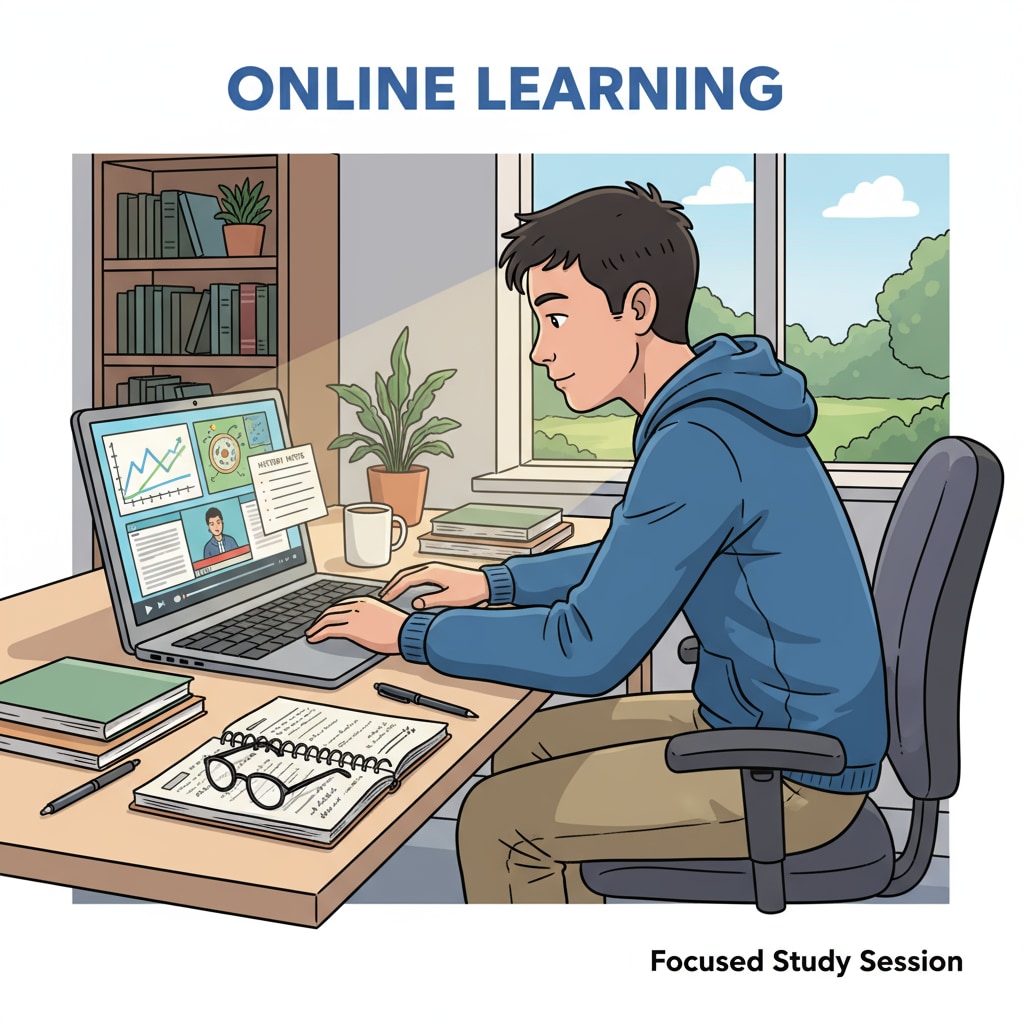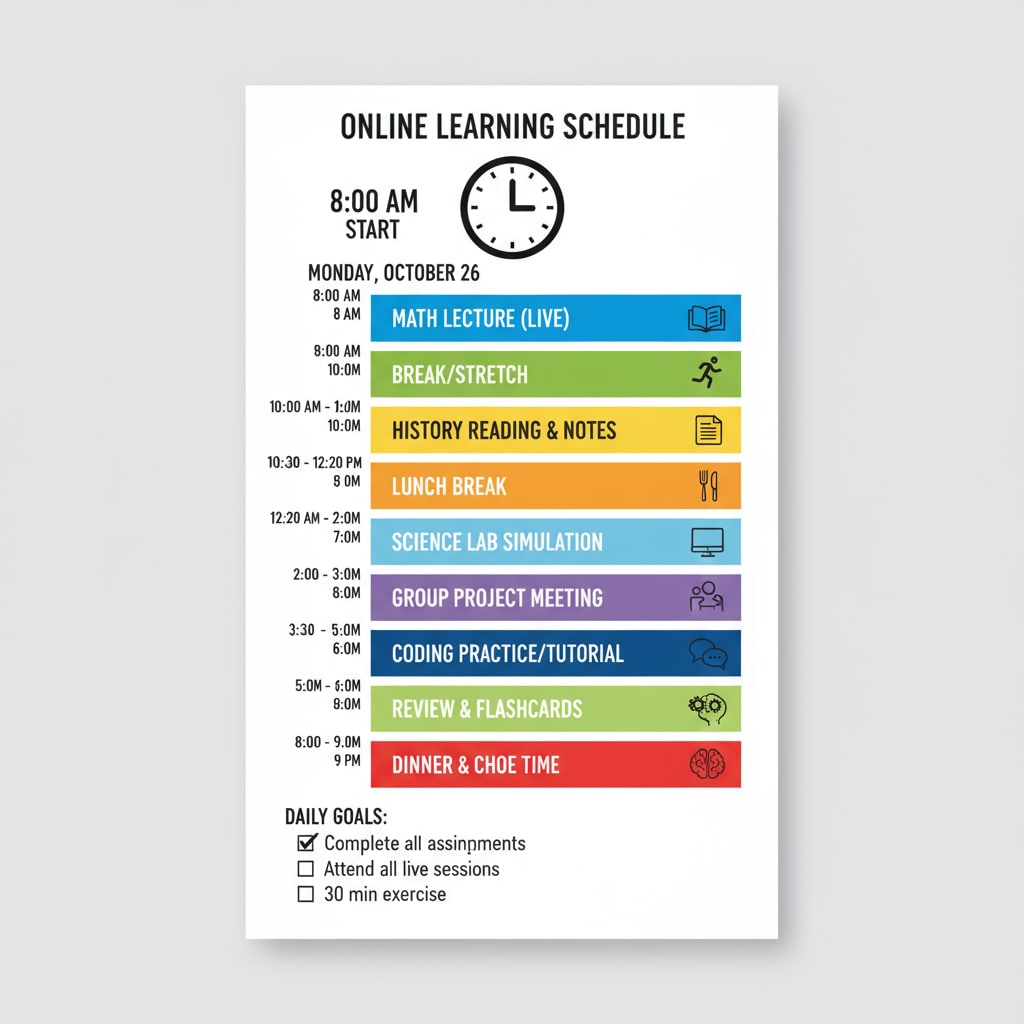Online learning has brought about a new set of challenges and opportunities in the realm of education, especially when it comes to productivity, procrastination, and mental health. With the flexibility it offers, students need to find ways to stay focused and make the most of their virtual learning experience.

For K12 students, the balance between mental well-being and academic performance is crucial, and online learning provides a path to achieve this flexibility.
Building Self-Discipline in the Virtual Classroom
Self-discipline is the cornerstone of success in online learning. Without the physical presence of teachers and classmates, students must take the initiative to create a structured learning environment. Setting a regular schedule, similar to that of a traditional classroom, helps establish a routine. For example, waking up at the same time each day, having dedicated study hours, and taking breaks at specific intervals. This consistency trains the mind to be in ‘learning mode’ during those periods. According to Psychology Today, self-discipline is a skill that can be developed over time, and starting with small, achievable goals is key. By gradually increasing the level of difficulty, students can build the self-control needed to stay on track in online learning.

Overcoming Procrastination in the Digital Age
Procrastination is a common hurdle in online learning. The abundance of distractions, such as social media and online games, can easily derail a student’s study plans. To combat this, students can use techniques like the Pomodoro Technique. This involves working in focused intervals, usually 25 minutes, followed by a short break. During the focused period, all distractions are eliminated, allowing for intense concentration. Another effective method is to break large tasks into smaller, more manageable ones. This makes the workload seem less overwhelming and encourages students to start working. As stated in Verywell Mind, understanding the root cause of procrastination, whether it’s fear of failure or lack of motivation, can also help in finding appropriate solutions.
Maintaining mental health is equally important in the online learning journey. The isolation that can come with virtual learning can take a toll on a student’s emotional well-being. Staying connected with friends and family, both online and offline, helps combat feelings of loneliness. Engaging in physical activities, such as going for a walk or doing yoga, also releases endorphins, which boost mood. Additionally, taking time for hobbies and interests provides a much-needed break from the rigors of studying. By prioritizing mental health, students can enhance their overall productivity and learning experience.
Readability guidance: Using short paragraphs and lists makes the content easier to understand. Each H2 section has a list of practical tips. The passive voice is used minimally, and transition words like ‘for example’ and ‘additionally’ are used to connect ideas smoothly.


